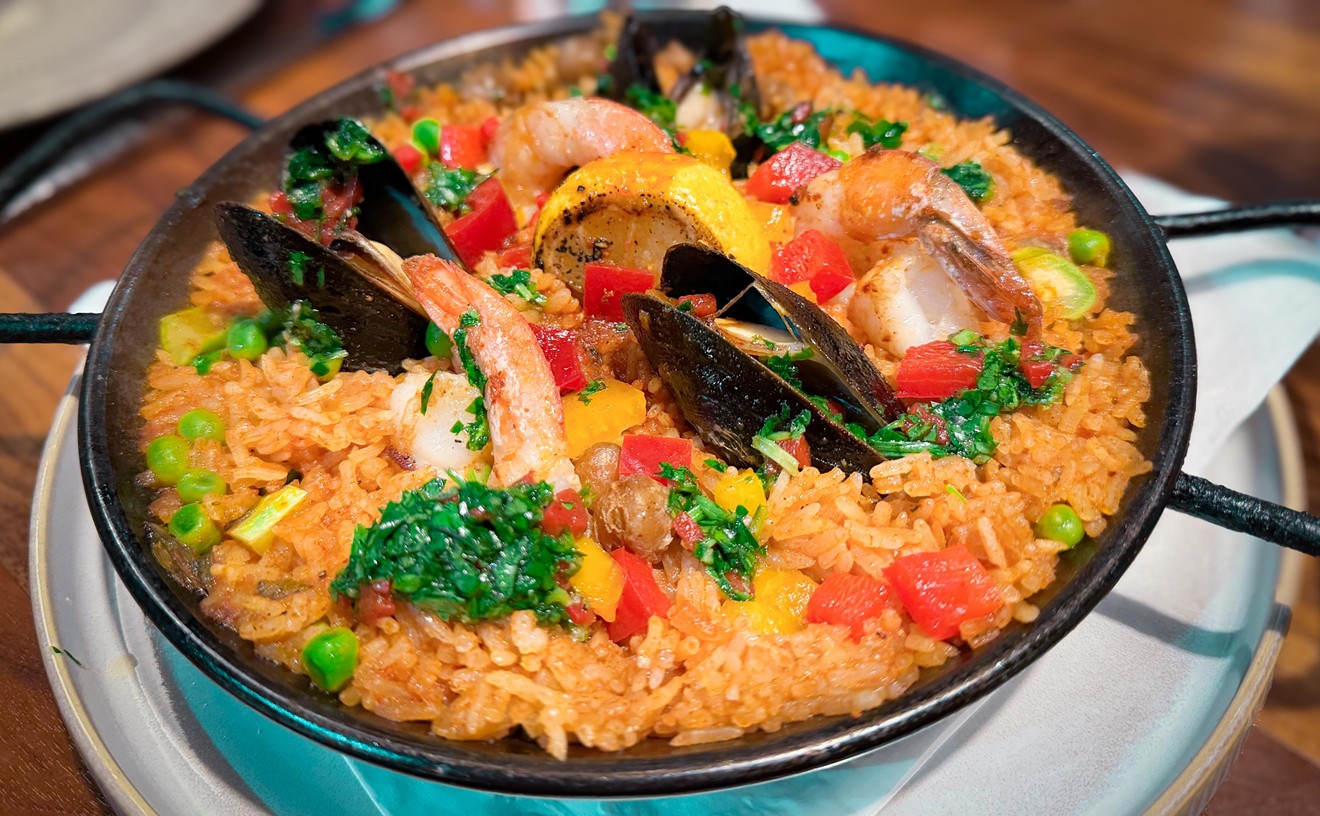If you're serious about keeping your kids off dope and out of liquor cabinets, researchers at Columbia University's National Center on Addiction and Substance Abuse (CASA) say one of the best things you can do is simply talk with them while they suck down plates of home-cooked macaroni and hot dogs.
Totally unrelated but pretty cool aside: If you're in Cambodia, you can talk to them while frying up the giant, hairy, monstrous tarantulas they caught by shoving long sticks into spider holes. Aren't other cultures fantastic?
Where were we. Oh, yeah: Last fall, CASA published a study called "The Importance of Family Dinners VI" (which sounds like either a bedtime story or an ironic heavy metal album) that showed teens who ate dinner with their parents five to seven times a week were less likely to try alcohol, tobacco or marijuana. They are more likely to have higher grades in school and sturdier relationships with their parents.
Unfortunately, the study showed that 40 percent of teens surveyed did not have frequent meals with their families. Of the teens whose parents refuse to feed them (or talk to them during feeding time), more than half said they longed to sit around a table with their parents and share a plate of pirogues. Fat chance: These teens are twice as likely to try alcohol or tobacco, and 1.5 times as likely to dabble in illegal substances.
I'm comforted that 60 percent of the country's teens seem to be happy, well-adjusted and sober. We could have skipped entire units in health class if everyone would have had a weekly spaghetti night.
Frequent family meals give parents and teens a chance to Talk About Life, says the study. Teens able to talk to their parents feel more secure and are inclined to believe that their parents are interested in their lives. They're more likely to stay drug free to avoid upsetting their parents.
The study showed (more or less) that it's not so much the neurological effects of a community pot of Spaghetti-O's as it is maintaining opening communication and interest. So even if late-night shifts or other pressing matters keep you from throwing a frozen lasagna in the oven and grilling your kids about what happened at school today, fear not: You can keep them from morphing into coked-out hellions by engaging them in conversation about their life, school and friends.
My family cooked and ate dinner together every night, which is probably the reason for my admirable work ethic and charming, can-do attitude. The only time we were left to fend for our hungry selves is when we were upset with each other. If somebody was making a sandwich for themselves at 9 p.m., it's because that somebody made Momma mad.
Both my roommate and my boyfriend grew up in households that required an act of Christ to get the family around the dinner table. But since our apartment isn't a grimy meth lab, I assume their parents talked to them on occasions besides Easter and Christmas.
To me, dinner is a nightly production. After a cheerful trip to the grocery store, I spend an hour burning my hands and slicing off my fingertips, complaining how there's "No space, no counter space, no refrigerator space, no space, not anywhere" and challenging my roommate and my boyfriend to remember why they love me at all.
Before we had a dining table, my roommate's dinner time meant sitting on the carpet in front of the television with a box of Spicy Cheez-Itz and a glass of Coke. Now, he eats the same thing, but he sits at our table. Next, I'll teach him to wear shoes and conjugate verbs.
My boyfriend is happy to munch on a bowl of cereal or unfold a wad of stinky deli meat and make a sandwich. "Dinner shouldn't be such a big deal all the time," he says, which makes me think his phantom children are headed for straight to jail, don't pass go, don't collect $200.
Even though eating dinner together in my apartment makes everyone supremely unhappy, it seems that everyone else's life can benefit from it. The Family Dinner Project is a grass-roots movement that encourages families to bond while making, eating and cleaning up after dinner. They offer tips for working around schedules and setting dinner-time goals. They say "sharing a fun family meal is good for the spirit, brain and health of all family members" and "nourishes ethical thinking," which is adorable and douchey at the same time, but mostly adorable. Didn't you always want to be the family who plays word games while infants help mix salad dressing? What other American dream is there?
So if your teen ends up masochistic, pregnant and hooked on drugs, you obviously should have talked to them more. Or made more butter noodles. Or thought twice before throwing out their Fisher Price kitchen set after their eighth birthday. Or all of the above.










